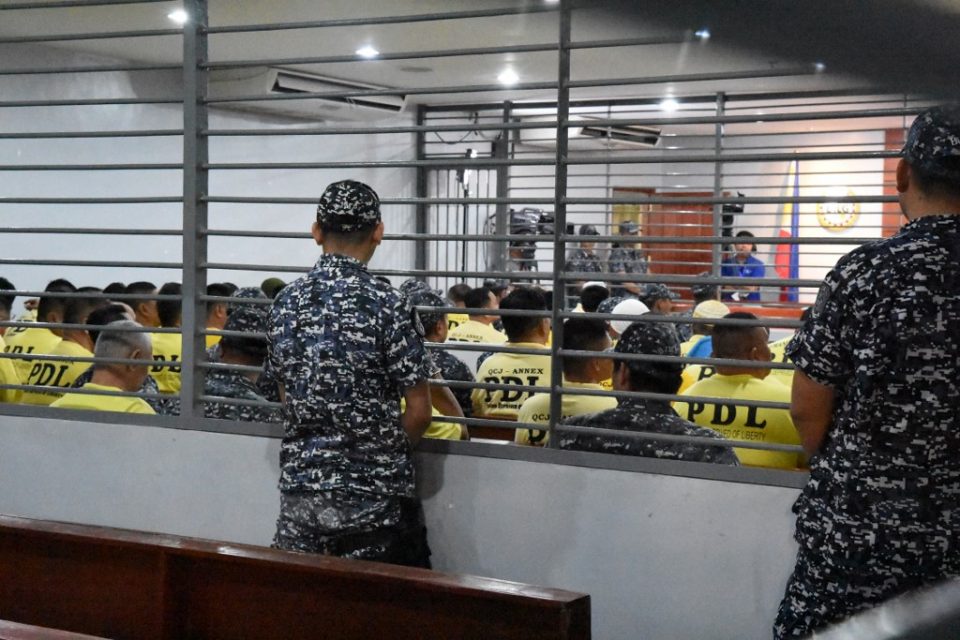
(Eagle News) – The day of reckoning comes for about a hundred accused in the gruesome Maguindanao massacre where 58 persons, including 32 journalists, were killed in a mass murder considered the worst media killing in one day.
Today, Dec. 19, Judge Jocelyn Solis-Reyes of the Quezon City Regional Trial Court Branch 221, is set to issue the verdict in a mass murder so horrific that it had shocked world media.
Ten years after the Nov. 23, 2009 Maguindanao massacre, Judge Solis-Reyes is in the spotlight as she reads the verdict after studying voluminous records on the case: 165 volumes of trial records; 65 records of stenographic notes; eight records of documentary evidence by the prosecution; and
testimony of 357 witnesses.
Judge Reyes submitted the case for decision on Aug. 22 this year and was required by the Supreme Court to issue a verdict 90 days later.
But because of the voluminous records on the case, she asked for a 30-day extension, thus the Dec. 19, 2019 promulgation date.
Justice Secretary Menardo Guevarra had said before that he was confident of a conviction for the principal accused, namely Ampatuan brothers Datu Andal Jr, Zaldy and Datu Sajid Islam.
The other principal accused, the Ampatuan patriarch, Datu Andal Sr died on July 17, 2015 due to complications brought about by liver cancer.
-Prosecution did its best-
A few days before the promulgation, Guevarra refused to speculate how the case will be decided, but said that the prosecution did its best.
“I have no idea as to how it will go but what I can say is that the prosecution presented all that it can,” he said.
“It did its best,” Guevarra said.
Of those charged, 80 are still at large, while 97 were detained in Camp Bagong Diwa in Taguig, including Andal Jr.
There were 11 charged who were released on bail, while eight have either been released or had the case against them dismissed.
There were initially 198 suspects, including Andal Ampatuan Jr. and Andal Ampatuan Sr. and several other members of the Ampatuan clan, who were charged with murder.
Gunmen slaughtered 58 people, including 32 journalists, and dumped their bodies in hastily dug pits as part of a mass killing that was one of the worst ever of media workers.
The case drew international criticism of the nation’s culture of impunity where powerful and wealthy political dynasties often operate above the law.
If convicted, in the culmination of a painfully slow trial marred by allegations of bribery and the murder of witnesses, the suspects could face decades behind bars.
The Ampatuans ruled the impoverished southern province of Maguindanao and were allowed to build a heavily armed militia by then president Gloria Arroyo to serve as a buffer against a long-running Muslim insurgency in the region.
Prosecutors say family members and their associates carried out the attack in broad daylight on a convoy carrying an Ampatuan family rival’s wife, relatives, lawyers and the journalists, who were killed in a hail of gunfire.
With scores of witnesses and mountains of legal paperwork, the case has creaked through a Philippine justice system notoriously overburdened, underfunded and vulnerable to pressure from the powerful.
During the case’s years of delays patriarch Andal Ampatuan Sr. and seven other defendants have died.
Four Ampatuan sons are among those facing judgement, led by his namesake Andal Ampatuan Jr., who was accused of personally leading the murders. The defendants have all pleaded not guilty.
Human Rights Watch said the case should serve as an impetus for judicial reform.
“It should not take another crime as heinous as the Maguindanao massacre for the Philippines to reform the delivery of justice,” said Phil Robertson, deputy Asia director of the New York-based monitor.
(with a report from Agence France Presse)








